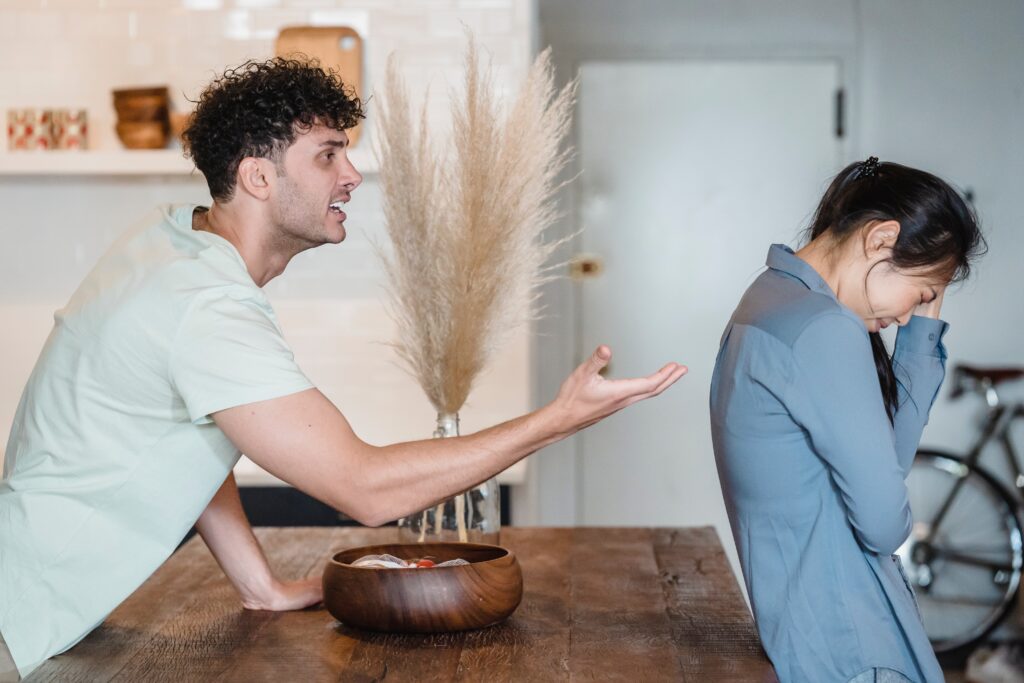5 Signs You Feel Emotionally Unsafe

Do you often feel anxious or on edge? Does this tend to happen whenever you’re around certain people in your life?
Just as a home, workplace or school should be physically safe and free from hazards, so should the close relationships in your life be safe and free from potential emotional damage.
It is important to be wary of judgment, excessive criticism, and anger; and to pay attention to the signs that you feel emotionally unsafe. This way, you may sooner be able to find or create a safer, healthier and happier space for you.
Here are 5 signs you feel emotionally unsafe.
1. You frequently feel anxious
Do you feel anxious when you are with this person or these people? A gnawing feeling of anxiety and unease is one that can’t easily be ignored. Perhaps this may even be what made you begin to suspect that you might be feeling emotionally unsafe.
Do you frequently feel on edge, and like you are walking on eggshells to avoid conflict and anger from them? Do you often worry about what might set them off, or when they are going to snap? If so, you are likely feeling emotionally unsafe (Chang, 2022; Zarrabi, 2022).
2. You feel judged and bad about yourself
Fulfilling relationships, especially partnerships, are meant to make you feel good about yourself and who you are. Do you feel accepted by this person or these people in your life?
Or do you often feel judged and criticized instead? You may have received so much criticism, judgment and blame that by now you have become overly self-critical as well. You may also find yourself often filled with self-doubt. If you feel unable to be yourself without being judged, then you may be feeling emotionally unsafe (Heitler, 2017; Matejko, 2021; Zarrabi, 2022).
3. You can’t express or be yourself
In an emotionally safe relationship (romantic or otherwise), you should feel comfortable enough to speak your mind and be yourself, and you should feel heard and understood.
Do you feel like you can’t share your thoughts and feelings with them? Are you reluctant to express yourself, and end up feeling unable to voice your needs, boundaries and feelings? Perhaps you are afraid that this person or the people around you will react poorly, criticize you or even leave you. Experience with this person may have discouraged you greatly from expressing and being yourself. If this is the case, you may be feeling emotionally unsafe (Chang, 2022; Heitler, 2017; Matejko, 2021; Zarrabi, 2022).
4. You can’t trust them
Emotionally safe relationships are grounded in mutual trust. Do you instead feel like you can’t trust your partner? Do you feel worn out or on edge from being constantly suspicious of them?
This mistrust can come in different forms, such as suspicions they will cheat on or leave you. But you may also have grown suspicious of what they might be thinking of you, whether they mean what they say, or even have ulterior motives or selfish reasons for their actions. You may find yourself expecting that they will hurt you, or generally expecting the worst of them, instead of the best (Chang, 2022; Heitler, 2017).
5. You feel disconnected from them
When you are with this person or these people, do you feel disconnected from them? Do you perhaps feel more fear and apprehension than fun and positivity?
It is normal in all types of relationships to have ups and downs, and to sometimes have disagreements or feel upset with each other. However, if you constantly feel that disconnect and tension, and you feel this negativity more than joy, affection and support from them, then it is possible that you feel unsafe and unhappy (Chang, 2022; Heitler, 2017; Matejko, 2021).
Concluding Remarks
Emotional safety can be worked on and cultivated, and while this can be improved on, all parties involved have to want to work on it and sincerely and continuously put in the effort over time. It is equally important to work on creating an emotionally safe space with loved ones as it is to recognize when it may be time to move forward from people who are causing you significant emotional distress (Chang, 2022).
Remember that your emotional safety and happiness should be a priority.
If you feel you or someone you know may need support or an out of an emotionally unsafe, and potentially abusive relationship, please do not hesitate to seek help from trusted loved ones whom you do feel safe with, as well as a qualified mental health professional.

References
Chang, J. (2022, April 18). What is emotional safety, and how do you increase it in your relationships? ReGain. Retrieved June 1, 2022, from https://www.regain.us/advice/general/what-is-emotional-safety-and-how-do-you-increase-it-in-your-relationships/
Heitler, S. (2017, October 25). Home is where you feel safe. how emotionally safe is yours? Psychology Today. Retrieved June 1, 2022, from https://www.psychologytoday.com/us/blog/resolution-not-conflict/201710/home-is-where-you-feel-safe-how-emotionally-safe-is-yours
Matejko, S. (2021, July 26). How to create emotional safety in a relationship: 7 tips. Psych Central. Retrieved June 1, 2022, from https://psychcentral.com/blog/how-do-you-create-emotional-safety-in-your-relationships#benefits
Zarrabi, R. (2022, March 8). 14 signs of an unhealthy relationship. Psychology Today. Retrieved June 1, 2022, from https://www.psychologytoday.com/intl/blog/mindful-dating/202203/14-signs-unhealthy-relationship



Responses